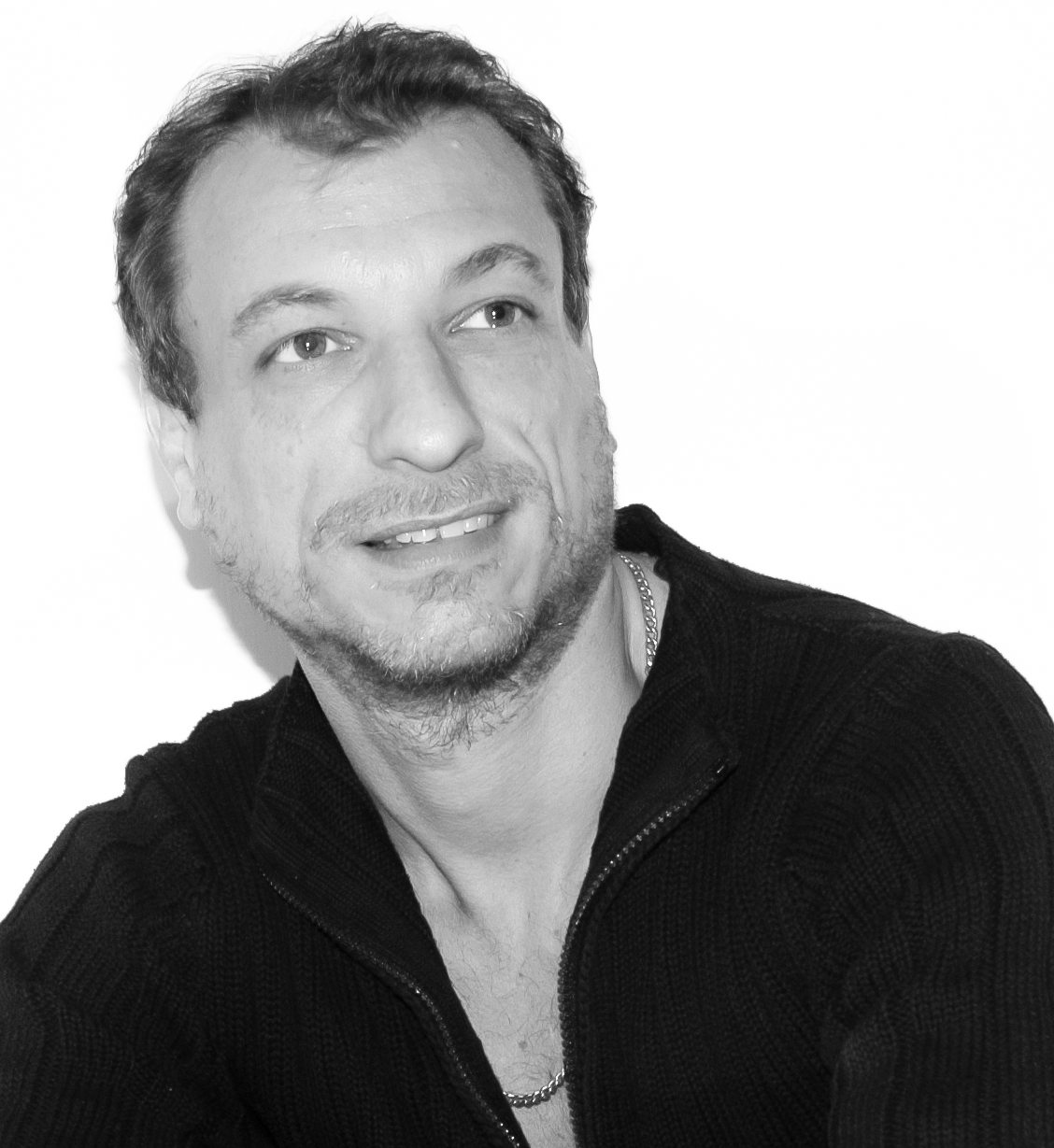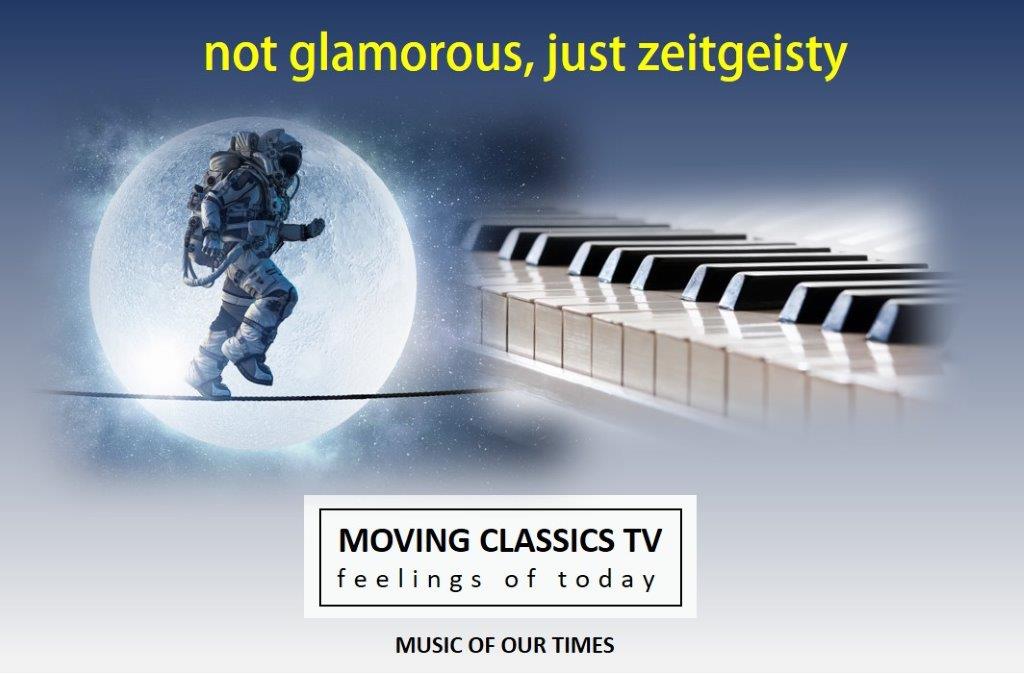About
Born in the city of Florida, Uruguay in 1974, he began his piano studies at the age of 9 years old and quickly displayed musical skills, giving his first major concert as a soloist at age 17.
As a teenager, he moved to Montevideo to finish Baccalaureate and then the Career in Communication Sciences, from which he graduated with 2 degrees in different specializations.
His piano and music teachers have been María Luisa Kinley, Luz Failache, Ulises Ferretti, Homero Ramos Millán, Numen Vilariño and Eduardo Alfonso.
Without the courage to apologize for iconoclasm, he stays away from competitions as well as scholastic academicism, a path that leads him to consolidate his artistic, self-taught, multifaceted and sensitive personality as he develops as a Pianist, Composer, Poet and Producer.
As a Pianist, he develops an intense activity in the official and independent field that has earned him the recognition of local and international critics.
He has been a pianist for the Ballet Nacional del Sodre for the last 6 years, led for 5 years by Maestro Julio Bocca and has held positions as a pianist at the Sodre Artistic Training Schools, both in Lyrical Singing and in Classical Ballet.
He has been accompanist pianist for over 15 years of the great Uruguayan tenor José Luis Pomi with whom he will offer numerous recitals throughout Uruguay. Likewise, he has played as a pianist accompanying and chamber musician of countless instrumentalists, choruses and lyric singers in the departments of Montevideo, Salto, Canelones and Florida.
He has recorded an extensive commercial discography of more than 60 titles and in constant growth, with international sales in places such as iTunes, Amazon, CDBaby and Spotify and he is the creator of the collection of discs ‘Emotional Ballet’ also of international sale, music specifically arranged for dance classes.
Many of his interpretations have been systematically disseminated in Sodre's Radios for more than 15 years.
In 2016 and 2017, he is invited by the Embassy of the State of Qatar in Uruguay to celebrate its National Day, as one of the representatives of the Uruguayan culture.
In 2017 he is invited to participate in the most prestigious Musical Festival in Uruguay - 'Uruguay sings to the Virgin of the Thirty-Three' - in his 23rd. edition, carried out in the Basilica Cathedral of the Florida town, where he was also been distinguished with the 'Plaqueta Virgen del Pintado' - the highest cultural award in Uruguay-, a recognition that for years has been given to personalities of Uruguayan culture for their artistic career and contribution to culture.
His homonymous YouTube channel has more than 2.000 videos of his concerts as soloist, accompanist and his discography with almost 1 million reproductions, something quite unusual for a classic Uruguayan musician.
The musical activity has led him to cross the most diverse stages of Uruguay as well as to appear in cities of Italy, Spain, Brazil and Argentina.
As a Composer, he launches in 2014 two Pop music discs called ‘Versions of me’ and its Spanish version ‘Versiones de mí’ with 11 songs of clear melodies and deep lyrics in different sub-styles and great vocal difficulty.
In 2016 he presents his Preludes for Piano cycle called '14 Minimalist Preludes of Loves Hurt' dedicated to his parents, intimate and descriptive scenes, of great aesthetic sensibility and some of them of considered technical skill, many of which saw their birth to his 17 years and they have had the recognition of local criticism.
In 2017 he musicalizes one of the last poems by the award-winning Uruguayan writer Raquel Martínez Martínez -'Gubernatrix Cristata' (Cardenal Amarillo)- which has been widely accepted in the Montevidean musical scene.
In 2017, on the occasion of the centenary of the creation of ‘La Cumparsita’, the most famous tango in the world, he compiles, arranges and creates variations on the original theme, resulting in a piece that has been cataloged as 'the best 'Cumparsita' for piano soloist of all times', in the words of the authorities of the National Academy of Tango in Uruguay.
As a Poet, he writes his first verses at age 15 on a road he can no longer abandon. He has edited 3 books: ‘Poems from a cloud’, ‘Poetry without shame’ and ‘Hidden poems’, with more than 300 poems published in a direct, honest and always sensitive style. His poems have been published in the Spanish magazine ‘Letras de Parnaso’ and in the Uruguayan magazine ‘Tertulia & Música’.
He has been the producer of several Uruguayan pianists and singers and he is his own producer and publisher of his albums, books and scores.
You can find more information about his work on his pages:
· YouTube: https://www.youtube.com/user/ramiroschiavoni
· Facebook: https://www.facebook.com/ramiroschiavoni
· Contact: ramiroschiavoni@gmail.com
Some critics received as a Pianist and Composer
■ EDUARDO GILARDONI - 'Sinfónica' Magazine, Montevideo - 2017
'Ramiro: It's great!, all sensitive inspiration coupled with a sure and mature technique. With this Cycle of Preludes you have entered the list of our Good Composers. Congratulations and thank you!'
■ LEONOR BOUTON DE CARREROU - ‘Sinfónica’ Magazine, Montevideo - 2015
‘He is an exceptional pianist with refined technique and splendid sound. His sensitive spirit is noticed in his ex-celent interpretations that denote a solid professionalism that we only find in every artist of great experience.’
■ NELSON GIGUENS RISSO - ‘Sinfónica’, Montevideo - 2006
‘True artistic personality, definitive, because of the wide range of styles, clever programmatic composition, technical perfection, soul variety, memory security, interpretive specificity [...] This young Uruguayan has the level of a great international master without exception, evidencing deep study, mature knowledge, radical intuition and consummate experience.’
■ FERNANDO GONZÁLEZ -Diario ‘El Heraldo’, Florida - 2004
‘If what Ramiro proposed was to impress us, he succeeded by approaching the said compositions with the ease of a master and the fluidity of a chosen one.’
ESPAÑOL
Nacido en la ciudad de Florida, Uruguay en 1974, comienza sus estudios de piano a la edad de 9 años y rápidamente muestra aptitudes musicales, brindando su primer gran concierto como solista a los 17 años.
En la adolescencia se traslada a Montevideo para realizar los estudios de Bachillerato y luego la Carrera en Ciencias de la Comunicación, de la cual egresa con 2 Títulos en diferentes especializaciones.
Sus maestros de piano y música han sido María Luisa Kinley, Luz Failache, Ulises Ferretti, Homero Ramos Millán, Numen Vilariño y Eduardo Alfonso.
Sin ánimos de apologizar por la iconoclasia, se mantiene alejado de concursos y competiciones así como del academicismo escolástico, camino que lo lleva a consolidar su personalidad artística, autodidacta, polifacética y sensible al desarrollarse como Pianista, Compositor, Poeta y Productor.
Como Pianista, desarrolla una intensa actividad en el ámbito oficial e independiente que le ha valido el reconocimiento de la crítica local e internacional.
Lleva 6 años como pianista del Ballet Nacional del Sodre dirigido los últimos 5 por el Maestro Julio Bocca y ha ocupado cargos de pianista en las Escuelas de Formación Artística del Sodre tanto en Canto Lírico como en Ballet Clásico.
Ha sido pianista acompañante por más de 15 años del gran tenor uruguayo José Luis Pomi con quien brindara numerosos recitales por todo el Uruguay. Igualmente, se ha desempeñado como pianista acompañante y camarista de inmumerables instrumentistas, coros y cantantes líricos en los departamentos de Montevideo, Salto, Canelones y Florida.
Lleva grabada una extensa discografía comercial de más de 60 títulos y en constante crecimiento, con venta internacional en sitios como iTunes, Amazon, CDBaby y Spotify y es creador de la colección de discos “Ballet Emocional” también de venta internacional, música específicamente arreglada para clases de danza.
Muchas de sus interpretaciones vienen siendo sistemáticamente difundidas en las Radios del Sodre desde hace más de 15 años.
En 2016 y 2017, es invitado por la Embajada del Estado de Qatar en Uruguay a la Celebración de su Día Nacional, como uno de los representantes de la cultura uruguaya. En 2017 es invitado a participar del Festival Musical más prestigioso del Uruguay -“Uruguay le canta la Virgen de los Treinta y Tres”- en su 23a. edición, llevado a cabo en la Catedral Basílica de la ciudad de Florida, donde además es distinguido con la “Plaqueta Virgen del Pintado” -máximo galardón cultural del Uruguay-, reconomiento que desde hace años se otorga a personalidades de la cultura uruguaya por su trayectoria artística y aporte a la cultura.
Su canal de YouTube homónimo, cuenta con más de 2.000 videos de sus conciertos como solista, acompañante y su discografía y con casi 1 millón de reproducciones, algo bastante inusual para un músico clásico uruguayo.
La actividad musical lo ha llevado a recorrer los más diversos escenarios del Uruguay así como a presentarse en ciudades de Italia, España, Brasil y Argentina.
Como Compositor, lanza en 2014 dos discos de música Pop llamados “Versiones de mí” y su versión en inglés “Versions of me”, con 11 canciones de melodías claras y profundas letras en diferentes subestilos y de gran dificultad vocal.
En 2016 presenta su ciclo de Preludios para Piano denominado “14 Preludios Minimalistas de Amores Dolidos” dedicado a sus padres, escenas intimistas y descriptivas, de gran sensibilidad estética y algunas de ellas de destreza técnica considerada, muchos de los cuales vieron su nacimiento a sus 17 años y que han tenido el reconocimiento de la crítica local.
En 2017 musicaliza uno de los últimos poemas de la laureada escritora uruguaya Raquel Martínez Martínez -“Gubernatrix Cristata” (Cardenal Amarillo)- que ha tenido gran aceptación en el ambiente musical montevideano.
En 2017, con motivo del centenario de la creación de "La Cumparsita", el tango más famoso del mundo, recopila, arregla y crea variaciones sobre el tema original, resultando en una pieza que ha sido catalogada como "la mejor 'Cumparsita' para piano solista de todos los tiempos", en palabras de las autoridades de la Academia Nacional del Tango en Uruguay.
Como Poeta, escribe sus primeros versos a sus 15 años en un camino que ya no podrá abandonar. Lleva editados 3 libros: “Poemas desde una nube”, “Poesía sin vergüenza” y “Poemas escondidos”, con más de 300 poemas publicados en un estilo directo, honesto y siempre sensible.
Sus poemas han sido publicados en la revista española “Letras de Parnaso” y en la revista uruguaya “Tertulia & Música”.
Ha sido productor de varios pianistas y cantantes uruguayos y es su propio productor y editor de sus discos, libros y partituras.
Puedes encontrar más información acerca de su trabajo en sus páginas de difusión::
· YouTube: https://www.youtube.com/user/ramiroschiavoni
· Facebook: https://www.facebook.com/ramiroschiavoni
· Contacto: ramiroschiavoni@gmail.com
Algunas críticas recibidas como Pianista y Compositor
■ EDUARDO GILARDONI - Revista “Sinfónica”, Montevideo - 2017
“Ramiro: ¡Es buenísimo!, todo inspiración sensible unido a una técnica firme y segura. Con este Ciclo de Preludios has entrado en la lista de nuestros Buenos Compositores. ¡Felicitaciones y gracias!”
■ LEONOR BOUTON DE CARREROU - Revista “Sinfónica”, Montevideo - 2015
“Es un excepcional pianista con técnica depurada y espléndido sonido. Su espíritu sensible se advierte en sus excelentes interpretaciones que denotan un sólido profesionalismo que solo encontramos en todo artista de gran experiencia.”
■ NELSON GIGUENS RISSO - Revista “Sinfónica”, Montevideo - 2006
"Verdadera personalidad artística, definitiva, ya por amplitud de estilos, hábil compaginación programática, perfección técnica, variedad anímica, seguridad de memoria, especificidad interpretativa. [...] Este joven uruguayo posee el nivel de un gran maestro internacional sin excepción alguna, acreditando estudio profundo, saber maduro, intuición radical y experiencia consumada".
■ FERNANDO GONZÁLEZ -Diario “El Heraldo”, Florida - 2004
“Si lo que se propuso Ramiro fue impresionarnos bien que lo consiguió, abordando las referidas composiciones con la desenvoltura de un maestro y la fluidez de un elegido”.

